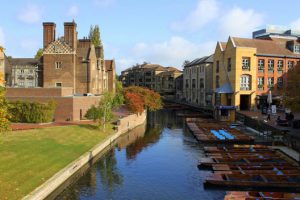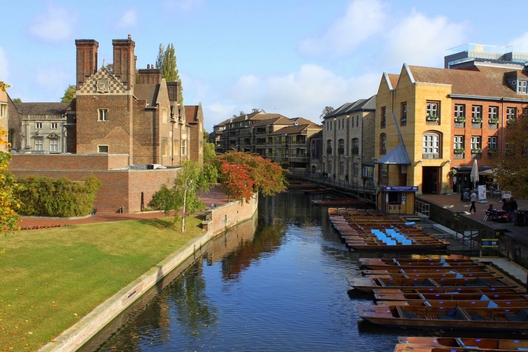 To Boylston Adams Beal
To Boylston Adams Beal
1 Silver Street
Cambridge, England. October 10, 1896
I left Oxford early in September . . . and went to Haslemere to visit young Bertrand Russell at his father-in-law’s, Mr Pearsall Smith’s. This is a family of Philadelphia Quakers long settled, or unsettled, in England. When the old lady, who delivers temperance lectures and now has Armenia on the brain, goes off to Evangelize something, the old man at home takes the opportunity to disevangelize himself, and declare he is not a Quaker at all, but a Buddhist. For, he says, the suffering in the world is appalling, and the best thing we can hope for is extinction and peace. He has accordingly removed himself as far as possible from earth already by building a hen-coop, covered with glass, up in a tree, where he squats, and, I believe, spends the night. He directed me to the place through the woods, and I had the curiosity to climb up to it, not without imminent danger of transmigration. There are wires stretched all around a circular ladder, by way of balusters in which one is sure to get caught. Perhaps they symbolize the Veil of Maya. However that may be, the family is not uninteresting, and Bertrand Russell himself is very clever and nice. He is writing a book on the history of the fourth dimension, or, as he calls it, the “Foundations of Geometry”. Everything now-a-days turns out to be founded on its latest development. This I suppose is what is called final causes, or ends that are beginnings, or putting the cart before the horse. . . . From Haslemere I went to Maidenhead, to the wicked Earl’s, where I stayed some four weeks. It was a very happy time. I was much alone, as Russell is busy and often goes to the city; I read a good deal, wrote a little, and took long walks, as I believe I told you I did at Oxford. I made friends with Tubby the Dog, who was my constant companions on these peripatetic occasions. Among other things, I read George Merideth, The Egoist and Evan Harrington, and like them. The style is not good in the former book, nor the plot, but the characters are well drawn: the latter reminds one in places of Thackeray and true wit. Russell’s affairs have been getting more and more perplexed. The Scotts, beaten at every point, have finally exploded, and sent out 350 copies of a circular, full of most filthy and ridiculous details, printed out, charging Russell with b—I mean, abusing all his servants ten years ago. Two of them have actually been bribed to sign the papers, and one to have a summons for an assault, committed at Winchester nine years ago, issued against Russell. This summons came as a surprise, and everything had to be prepared for the defence in a great hurry. It turned out, however, that at the time selected, June 18, 1887, both Burke and I were with Russell at Winchester, and he was staying at the College with Mr & Mrs Richardson. With the testimony of other servants, that have remained faithful, it would have been possible to prove an alibi, and expose the malice of the accusation. The Scotts either got wind of this, or their counsel refused to act for them, for when yesterday we had all gone to Winchester, to the trial, and the Rev. Mr. Dickens, Vicar of St John’s had come in his trap for us and driven us to the court, which was packed, and we,—a dozen of us a least,—had crowded it still more, the representative of the prosecution got up and said that to save the time of several gentlemen in the court, he would announce that the action against Lord Russell had had to be abandoned, for it had been found that the spot where the offence was alleged to have been committed lay outside the limits of Winchester, and therefore beyond the jurisdiction of that court. Matthews, Russell’s counsel thereupon got up melodramatically and with fearful grimaces and pregnant inflections of the voice, said he would make no comment, etc, but he was not surprised, not in the least surprised, etc, that the prosecution had dropped the case like a hot potatoe. Meantime Russell’s solicitor had got hold of the publishers of the libels, who are willing to swear that Lady Scott paid them and instructed them, and have produced the list of 350 names, peers, judges, relations, and academic people, in Lady Scott’s own hand, on her own scented note-paper, to whom the libels were sent. This connects Lady Scott with the publication, and a warrant for her arrest has by this time, I suppose, been issued. We now hope to get her at least two years’ hard labour.
From The Letters of George Santayana: Book One, [1868]-1909. Cambridge, MA: The MIT Press, 2001.
Location of manuscript: The Houghton Library, Harvard University, Cambridge MA.
